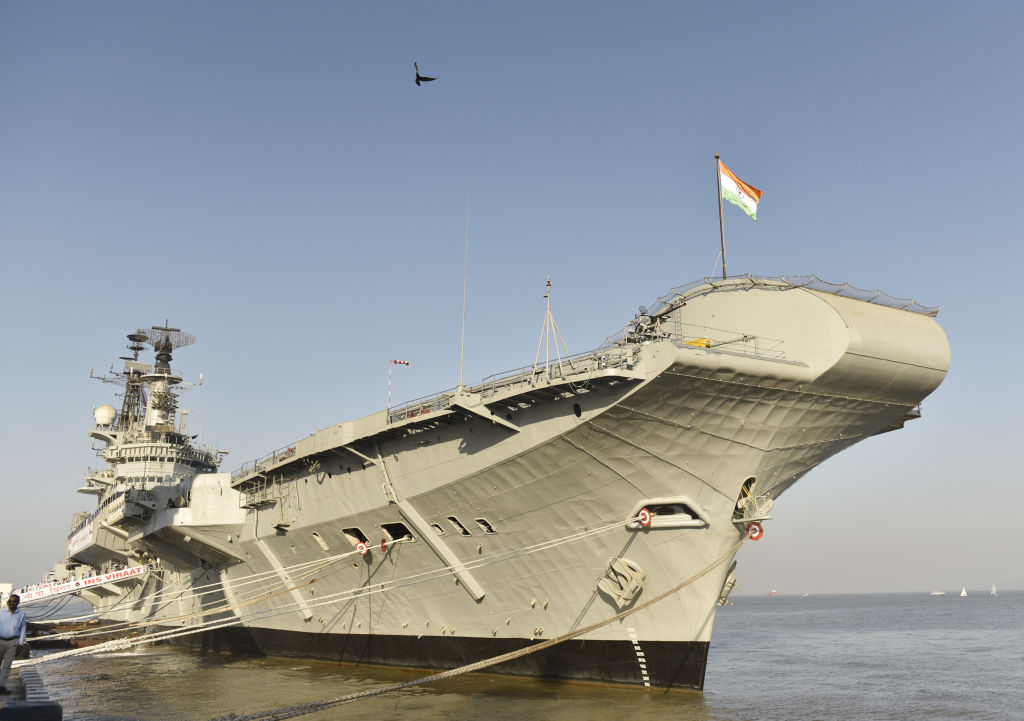There may be no nation in the world more proud of its naval history than the U.K., so when one of its much-loved Falklands War warship became destined for the scrap heap, patriotic folks stepped up to try to save it.
That march to the scrap heap was almost certainly going to occur in the case of the HMS Hermes, a Royal Navy ship that has been owned by India since 1987.
When word spread that an online auction last month failed to find a buyer, British Minister of Parliament (MP) David Campbell Bannerman launched a bid to collect funds to purchase the now-decommissioned Falklands ship and aircraft carrier, and take it back to the U.K.
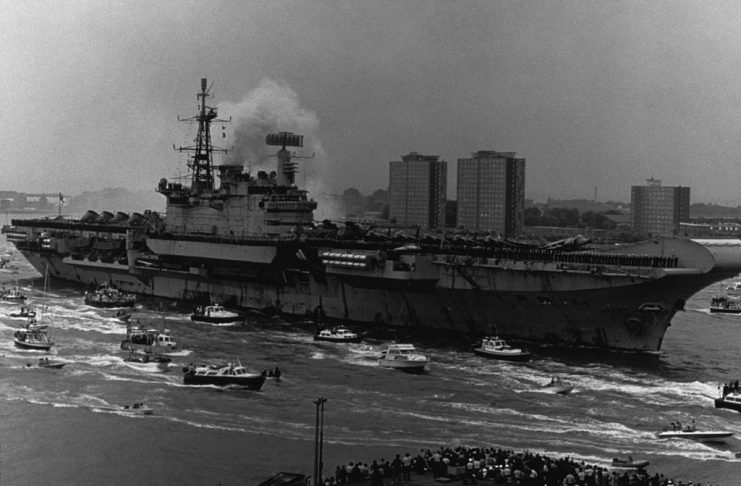
Bannerman told the newspaper the Sunday Express that Prime Minister Boris Johnson himself kept the carrier from, well, sinking. (At the time of writing, Number 10 Downing Street had yet to confirm or deny that Johnson had in fact helped save the vessel by placing a call to the Indian government).
Nonetheless, as Bannerman told the Express, “it is good news for whatever reason that the HMS Hermes can be saved.” He added, “We can raise more money from private backers than the Indian government would receive for turning it into scrap.
It is very important that we keep some of our naval heritage and history for future generations to see.” Bannerman hopes that his group will raise about 10 million pounds, half of which will go to the Indian government, while the rest will go for “moving expenses” and minor upgrades.
Now called the INS Viraat, the carrier has been sitting idle since 2017, and the Indian Navy was ready to scrap it — hence, the online auction.
But in spite of running the sale from noon until part way through the evening, not a single nibble was had from any buyer.
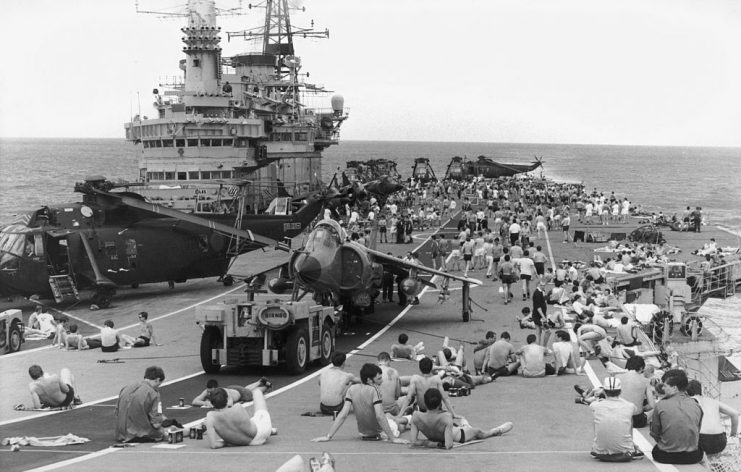
There had been big plans for the vessel in the late 1980s and into the 1990s. At first, officials thought of turning the ship into a maritime museum, but that fell through.
Then, a plan was broached for it to become a marine adventure centre, but those ideas came to nothing as well, as did a plan for the ship to become a hotel.
Not everyone is saddened — or surprised — that the HMS Hermes didn’t attract a lot of excited buyers online.
Retired Lieutenant Commander Mike Critchley wasn’t shocked at all, and told the online news website Portsmouthnews.com that, “There have been a number of proposals (for the ship) over the years but they’ve never materialized — it’s tough to make the books balance for proposals like this.” And, he added somewhat wistfully, “you can’t preserve everything.”
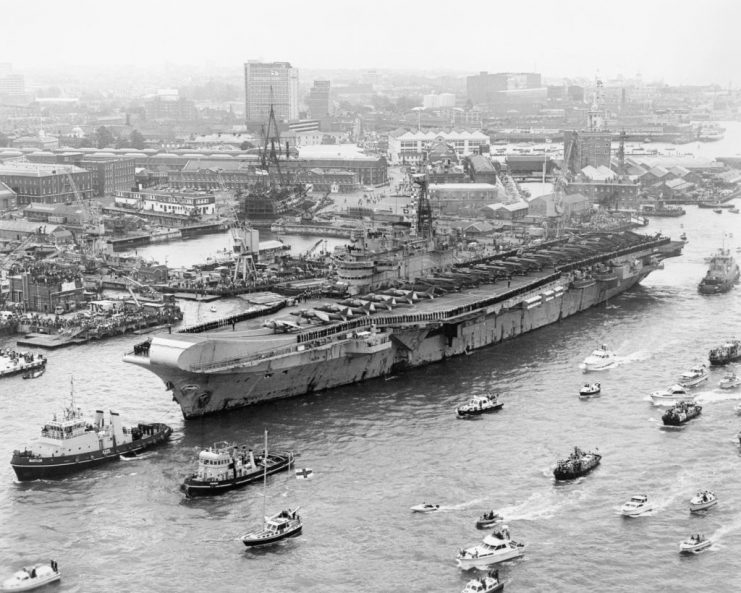
But for some folks, the HMS Hermes is indeed worth preserving, and that includes Andy Trish.
He served on the ship during the Falklands War, and is optimistic that it can be saved and made useful again. “HMS Hermes is like home to the people who served on board,” he insisted to Forces Network in July, 2019. “We all loved her.”
The fate of the ship is still not precisely clear, but the Indian government and British officials are working hard to strike a deal that is fair and agreeable to all involved.
Building of the HMS Hermes was begun in 1944, during the Second World War; however, the vessel did not formally join the Royal Navy until 1953, according to the Express.
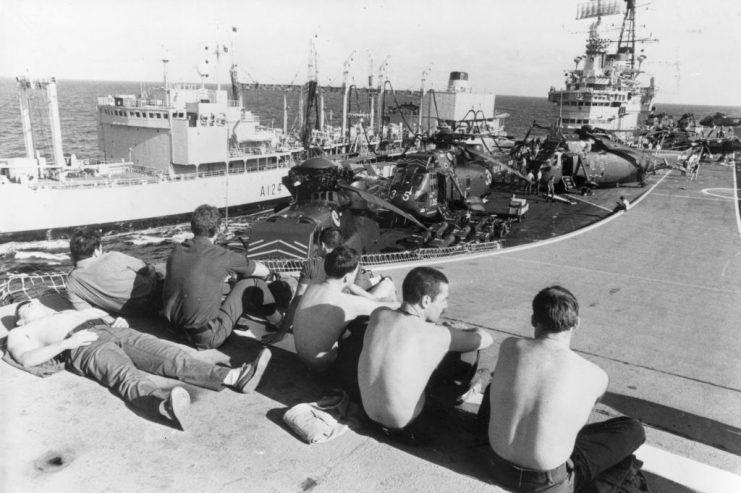
After the sale to India, the boat was in danger of being turned to scrap on several occasions, but managed to avoid that fate each time.
And now, apparently, it has avoided that fate yet again, and soon could be in the hands of a group of people who prize it and have great hopes for its future. A museum? A veritable floating history lesson for citizens and tourists?
Another Article From Us: How France Helped Argentina During The UK’s Falklands War
That remains to be seen, but one matter is certain — the HMS Hermes is no longer at risk of sinking, literally or metaphorically, thanks to a dedicated group of civilians and the Indian and British governments that are willing to work with them.
